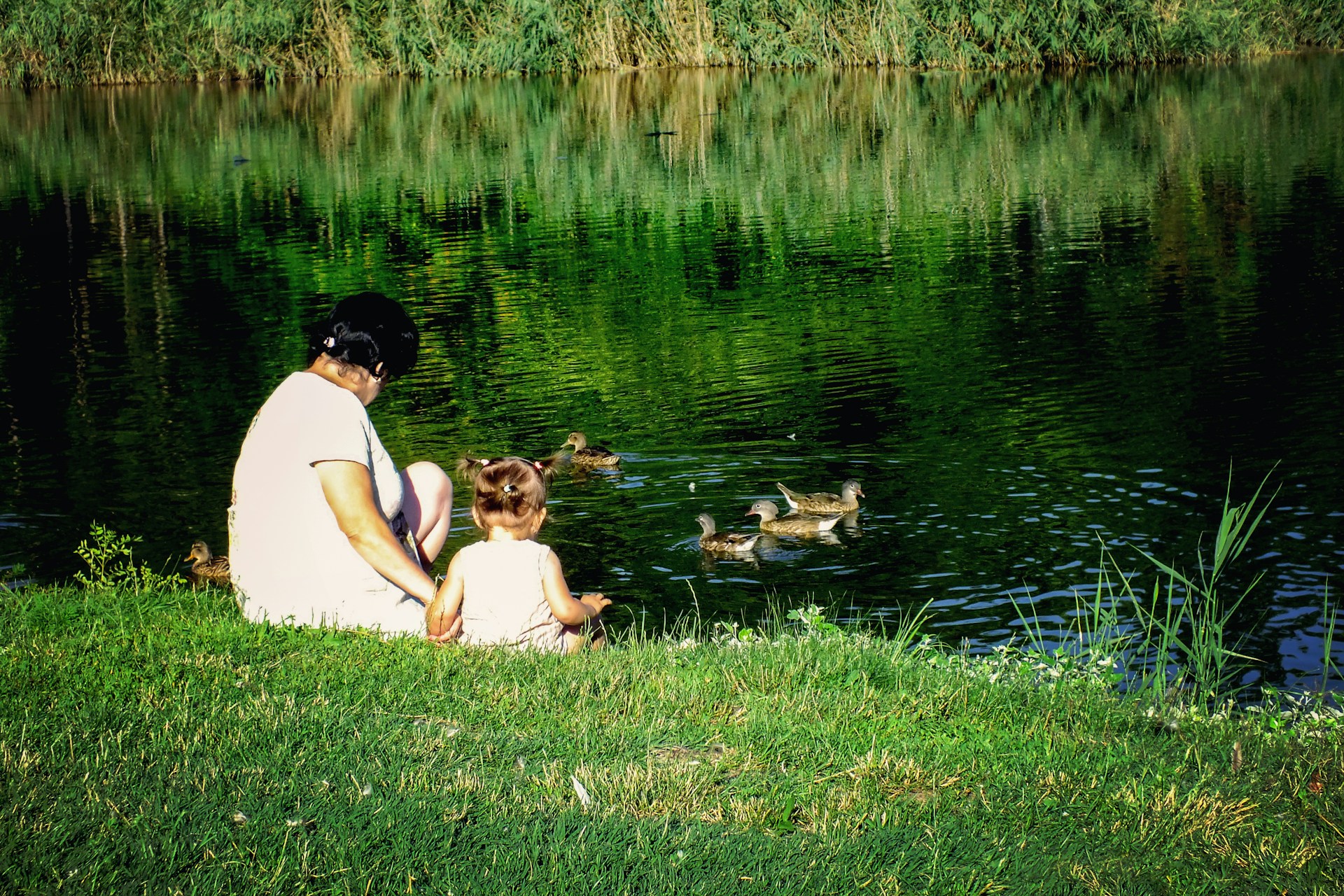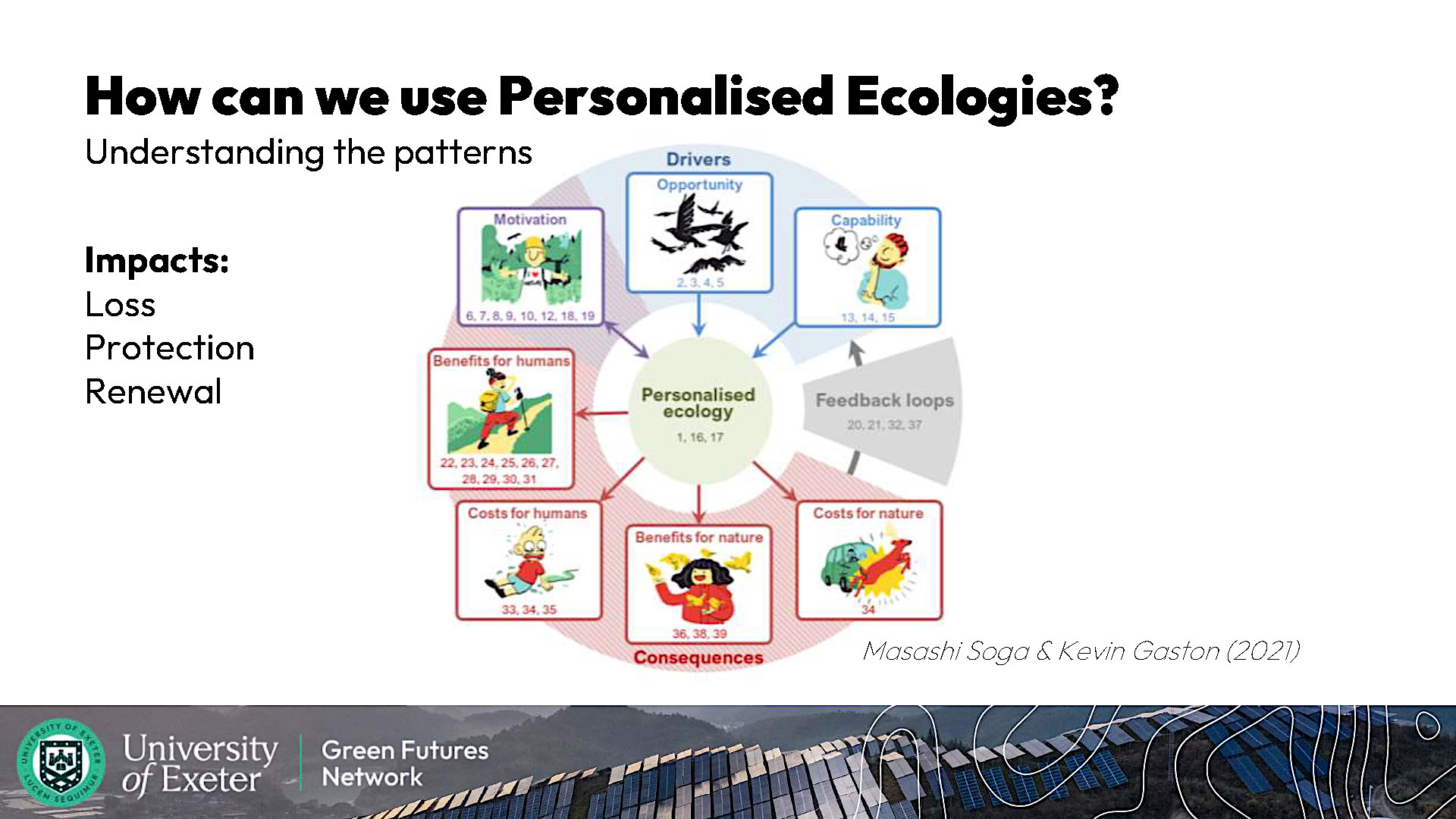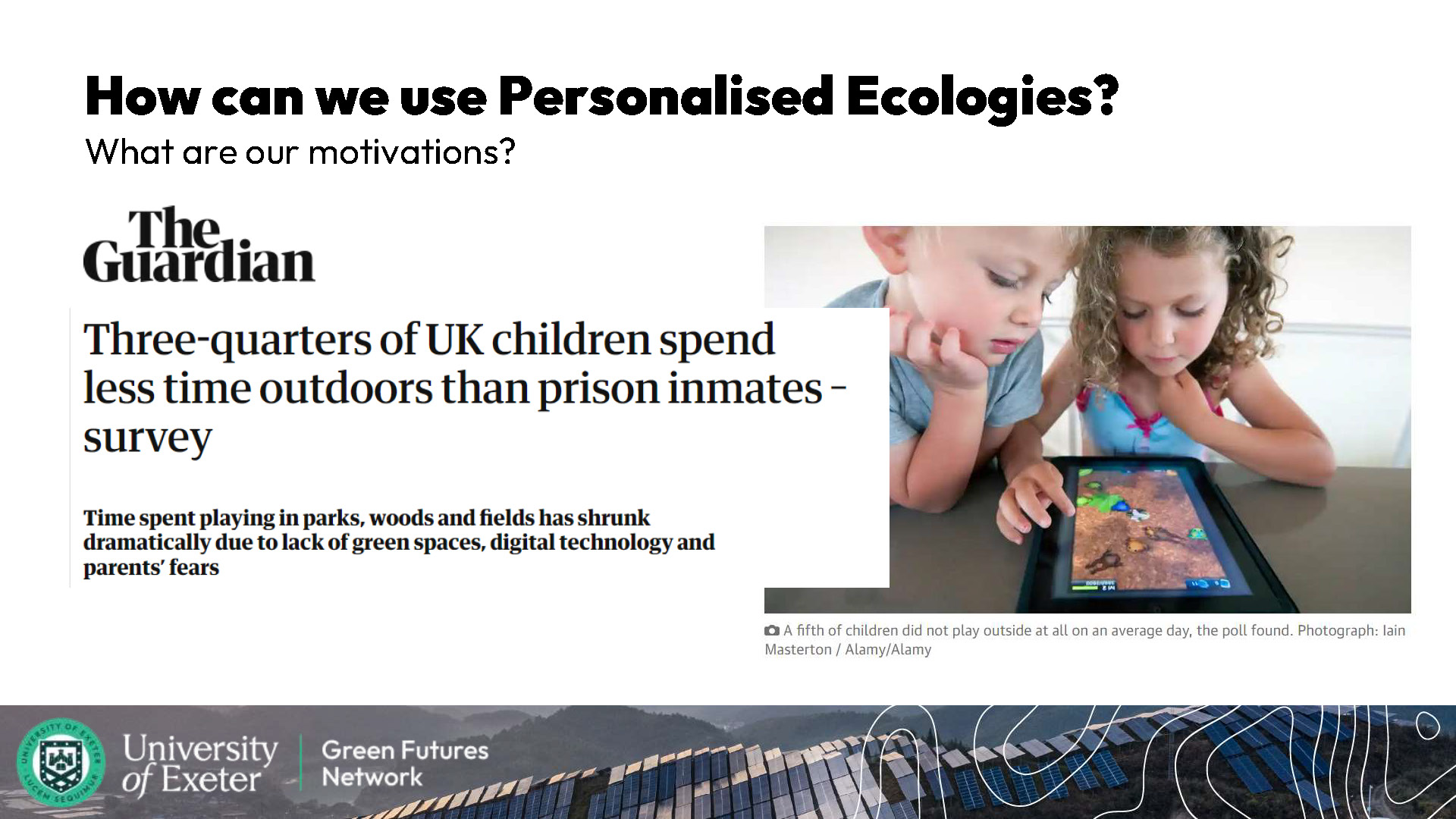
Personalised Ecologies
This blog is copied from the RENEW project website.
The importance of Personalised Ecologies
by Simon Pattenden, RENEW Communications Officer
When Peter Lefort approached Prof. Kevin Gaston following the first of RENEW’s Personalised Ecology events at the ESI Cornwall, Peter was excited about exploring Personalised Ecologies (PE) through the lens of the Green Futures Network, an initiative at the University of Exeter with a reputation for making environmental and climate research accessible to everyone.
The subsequent event was a well-organised workshop held online on 20th June 2023, which introduced over 90 participants to the theory of PE through innovative Mentimeter polls and group feedback coordinated by Peter. Stemming from discussions was a series of qualitative responses, thoughts, beliefs, and new ideas with suggestions for the real-world application of PE research across industry and social contexts.
Attending the workshop, Dr Richard Kulczak-Dawkins, a practising architect and Co-Founder of the nonprofit, interdisciplinary initiative Building Meaningful Futures suggested people with a positive PE might make more empathic designers, able to connect the working environment with human health to improve productivity whilst promoting biodiversity.
“PE could give me better tools to visualise what nature might mean to people from a very individual personal perspective. So I foresee PE in my work. There are loads of potential here.”
Dr. RP Kulczak-Dawkins. Building Meaningful Futures

Also in attendance, Patrick Oko Quaye is a RENEW PhD student in Management Studies at the University of Exeter. Patrick’s research aims to comprehend how business managers make sense of the dynamic and complicated issues surrounding biodiversity in their business operations and how individual connections to nature can positively impact industry.
“My research specifically looks at biodiversity and its impact on businesses. We believe early individual interactions with nature may influence how a person makes decisions, even in their respective companies. For example, someone who grew up next to nature obviously would develop a sense of empathy when making environmental decisions in their companies. Whilst someone with an absence of nature in their childhood may prioritise capital in their decision making.”
Patrick Oko Quaye, RENEW PhD student in Management Studies
Reconnecting people to nature, encouraging a sense of environmental stewardship and prioritisation of nature over capital for example, can help mitigate what Prof. Kevin Gaston refers to as an ‘Extinction of experience’, a disconnection with nature particularly throughout childhood.

With biodiversity in decline across the globe, the willingness to understand, reconnect and empathise with complex environmental issues are qualities that all of us possess. The potential for PE positively to influence human behaviour and environmental decision-making is a practical methodology and systems thinking model for both researchers and layperson audiences alike and it’s this potential for forecasting behaviours based on PE that interests researchers in the fields of human health, biodiversity, and ecology. Furthermore, PE may provide a valuable tool when facing global issues such as climate change and biodiversity loss, where collective behaviour change is urgently needed.
As the Scottish-American naturalist, Robert Muir once said, “Going out, I found was really going in.”
Watch the full Personalised Ecologies workshop here. Download the slide deck Personalised Ecologies June 2023
Cover image: Denis Agati, Unsplash
